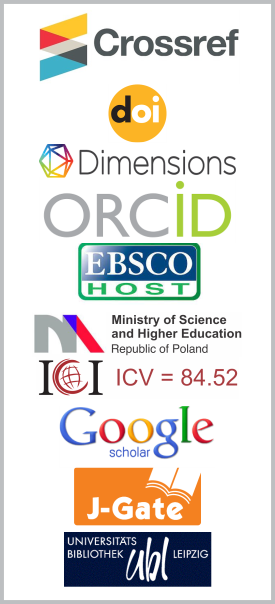Experimental Approach of Various Controller Tuning Methods for Integrating Processes With Dead Time
DOI:
https://doi.org/10.26713/jims.v11i3-4.1165Keywords:
Tuning, PID Control, Dead time, Controller, Inergrating processAbstract
PID control is widely used in industrial control systems in order to adjust the controller gains according to change in plants. In this proposed work, controller tuning is performed automatically based on various tuning formula. The responses of various tuning methods for integrating process are analyzed for process with dead time.
Downloads
References
K. J. í…ström and T. Hägglund Automatic tuning of simple regulators with specifications on phase and amplitude margins, Automatica 20(5) (1984), 645 – 651, DOI: 10.1016/0005-1098(84)90014-1.
E. Kalaiselvan and J. D. Tagore, A comparative novel method of tuning of controller for temperature process, Instrumentation Journal of Advanced Research in Electrical, Electronics and Instrumentation Engineering 12(11) (2013), 5687 – 5698, https://www.ijareeie.com/upload/2013/november/33_AComparative.pdf.
D. E. Rivera, M. Morari, S. Skogestad, Internal model control 4: PID controller design, Industrial and Engineering Chemistry Process Design and Development 25 (1986), 252 – 265, DOI: 10.1021/i200032a041.
R. De Keyser, C. T. Muresan and C. M. Ionescu, A novel auto-tuning method for fractional order PI/PD controllers, ISA Transactions 62 (2016), 268 – 275, DOI: 10.1016/j.isatra.2016.01.021.
R. Rice and D. J. Cooper, Practical Model Predictive Control Structures for Non-Self Regulating (Integrating) Processes, The Instrumentation, Systems and Automation Society, ISA Expo (2003).
W. Tan, J. Liu, T. Chen and H. J. Marquez, Comparison of some well-known PID tuning formulas, Computers and Chemical Engineering 30(9) (2006), 1416 – 1423, DOI: 10.1016/j.compchemeng.2006.04.001.
S. Debbarma and A. Dutta, Utilizing electric vehicles for LFC in restructured power systems using fractional order controller, IEEE Transactions on Smart Grid 8(6) (2017), 2554 – 2564, DOI: 10.1109/tsg.2016.2527821.
Downloads
Published
How to Cite
Issue
Section
License
Authors who publish with this journal agree to the following terms:- Authors retain copyright and grant the journal right of first publication with the work simultaneously licensed under a CCAL that allows others to share the work with an acknowledgement of the work's authorship and initial publication in this journal.
- Authors are able to enter into separate, additional contractual arrangements for the non-exclusive distribution of the journal's published version of the work (e.g., post it to an institutional repository or publish it in a book), with an acknowledgement of its initial publication in this journal.
- Authors are permitted and encouraged to post their work online (e.g., in institutional repositories or on their website) prior to and during the submission process, as it can lead to productive exchanges, as well as earlier and greater citation of published work.




